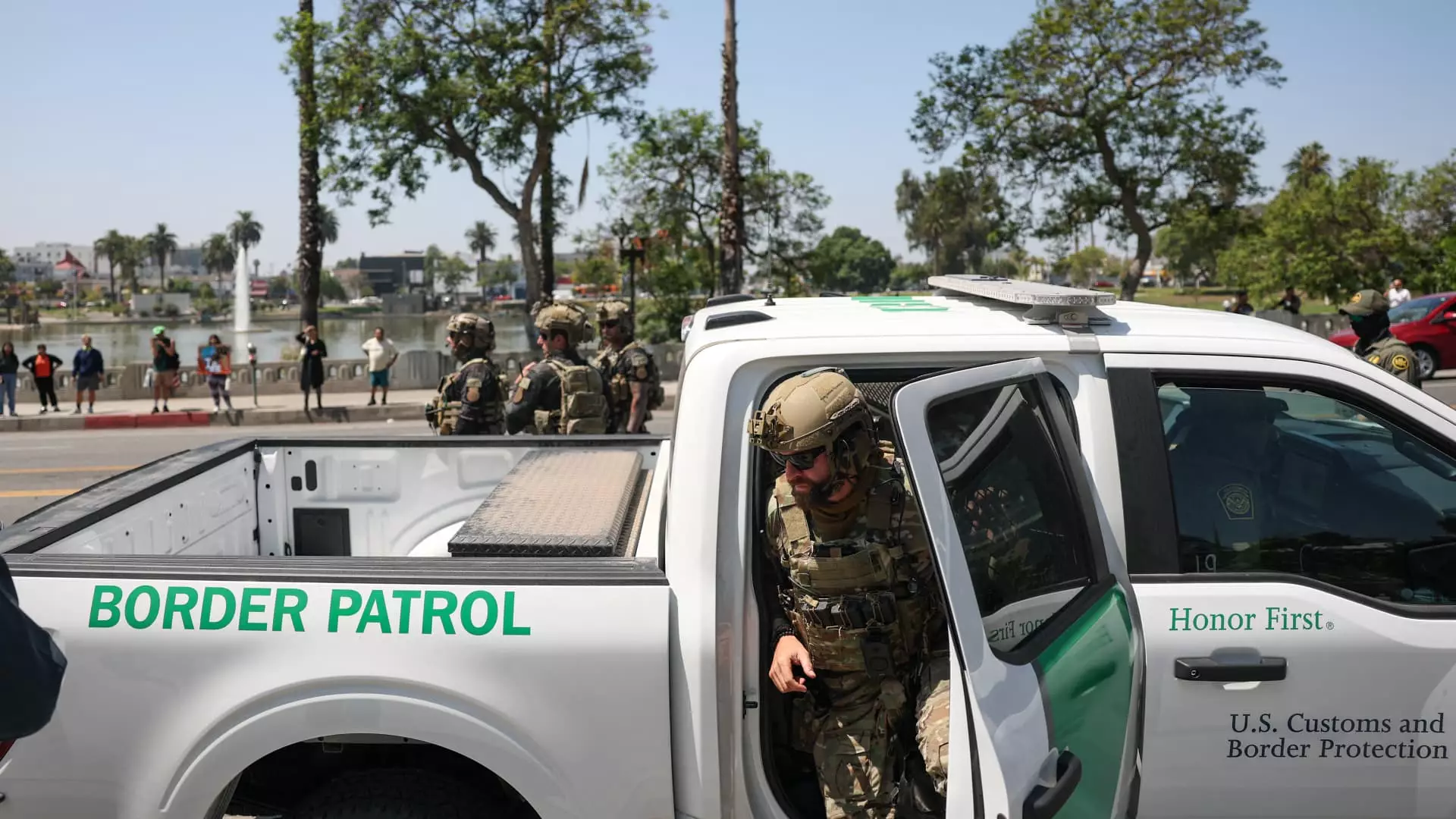The recent decision by a federal appeals court to uphold a temporary restraining order against the Trump administration’s aggressive immigration tactics is a momentous defeat for authoritarian overreach masked as law enforcement. This ruling signals a crucial resistance to a policing approach rooted in racial profiling and unconstitutional practices. It’s a breath of fresh air in a landscape that often seems dominated by unchecked administrative power, leaning heavily towards segregationist policies that threaten the fundamental rights of immigrant communities.
The Ninth Circuit’s decision explicitly challenges the federal government’s attempts to circumvent constitutional protections under the guise of enforcing immigration laws. The court’s questioning of the government’s need to ignore established legal standards reveals a critical judicial pushback against policies that prioritize deportation over individual rights. The administration’s efforts to justify sweeping, suspicionless stops—based on race, language, or location—are not only ethically dubious but legally indefensible. This ruling underscores the importance of judicial oversight in safeguarding democratic principles against unconstitutional enforcement practices that disproportionately target minority populations.
Furthermore, the court’s highlighting that these factors—race, language, location, and occupation—are used as de facto justification for detention illustrates how systemic racial bias can infiltrate even supposedly neutral law enforcement policies. This isn’t just about individual cases; it’s about whether the federal government can operate the legal system as a tool of racial profiling. The judges’ insistence that such broad criteria cannot constitute reasonable suspicion is a clear warning against turning enforcement efforts into racial surveillance programs. The judiciary appears to recognize that when profiling becomes standard practice, it erodes the legal protections meant to shield citizens and non-citizens alike from arbitrary detention.
The Battle Over Federal Overreach and the Future of Civil Liberties
In the ongoing conflict over immigration enforcement, the Trump administration’s tactics have been nothing short of provocative, sparking widespread protests and community resistance in Los Angeles and beyond. Federal agents have conducted mass roundups at everyday locations—trades such as car washes, farms, and shopping centers—drawing sharp criticism from civil rights advocates. These raids often lack transparency and are rooted in practices that can readily devolve into racial profiling, which the courts are rightfully challenging.
The case brought by immigrant advocacy groups, including the American Civil Liberties Union, exposes the dangerous precedent set by policies that treat human beings as suspects based solely on appearance, accent, or neighborhood. The story of individuals like Brian Gavidia, who was forcibly detained while asserting his U.S. citizenship, unapologetically illustrates how these policies threaten the fabric of communities—where even long-standing residents can be swept into a system that denies their basic rights. It underscores a stark reality: immigrant communities are increasingly living under the shadow of fear, with their rights sacrificed at the altar of aggressive enforcement.
This is precisely why the court’s decision is so significant. It signals that even in an era driven by rhetoric of border security and “law and order,” fundamental constitutional safeguards cannot be abandoned. The judiciary’s interference with practices that rely on racial profiling reflects a recognition that no administration is above the law. Protecting civil liberties means resisting policies that threaten to turn local neighborhoods into checkpoints for suspicionless detention. It’s about upholding the principle that law enforcement must operate within constitutional bounds, not in the pursuit of dragnets driven by prejudice.
A Call for Fairness Over Fear-Mongering
The federal government’s reluctance to accept criticism and its argument that it was unfairly blindsided by the lawsuit reflect a troubling tendency. Instead of engaging in meaningful legal debate about the boundaries of immigration enforcement, officials seem more concerned with maintaining broad powers that disproportionately impact marginalized communities. Their claim that the court’s order impedes their ability to enforce immigration law ignores the reality that constitutional rights are not concessions to be granted at administrative discretion.
This protective judicial stance is a testament to the importance of checks and balances in a democratic society. The court’s skepticism about claims that the government lacks enough evidence points to a broader concern: that enforcement agencies are opting for broad, racially charged profiling tactics rather than targeted, lawful operations. The danger of such actions is the normalization of suspicion-based detention, which strips individuals of due process simply because they belong to a community historically viewed through a lens of suspicion.
In the broader political context, this case highlights the essential tension between security and civil rights. While security is a legitimate concern, it must not justify policies rooted in discrimination. If anything, this legal confrontation underscores the need for a more equitable approach—one that respects diversity and insists on accountability. As a society, we must resist policies that criminalize entire communities based on superficial traits. Justice demands a careful, nuanced approach—one that aligns law enforcement with constitutional principles rather than prejudiced stereotypes.
The ongoing legal process hints at a future where the fight for immigrant rights will continue to be sharply contested. It reminds us that safeguarding civil liberties is an active, ongoing process—one that requires vigilance and the courage to challenge policies rooted in fear and prejudice. The judiciary’s role in this dynamic is vital; it serves as a defender of the constitutional order, ensuring that enforcement measures remain fair and just, not arbitrary and biased. This ruling isn’t just a legal victory; it’s a rejection of an unjust narrative that seeks to dehumanize and criminalize immigrant communities under the guise of law enforcement.


Leave a Reply